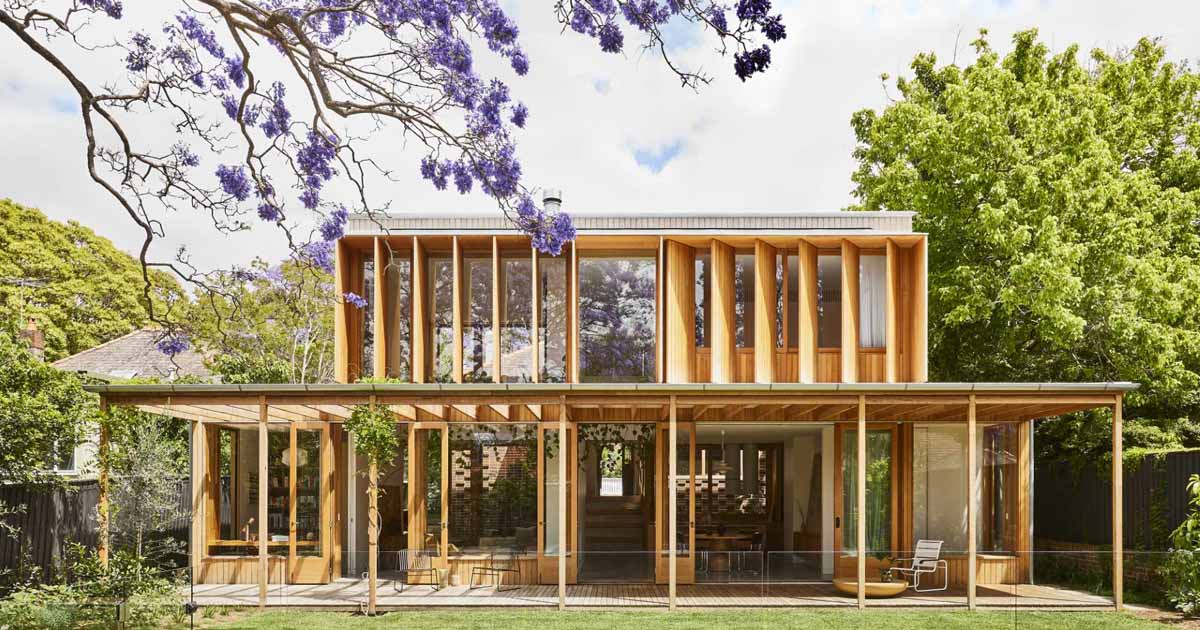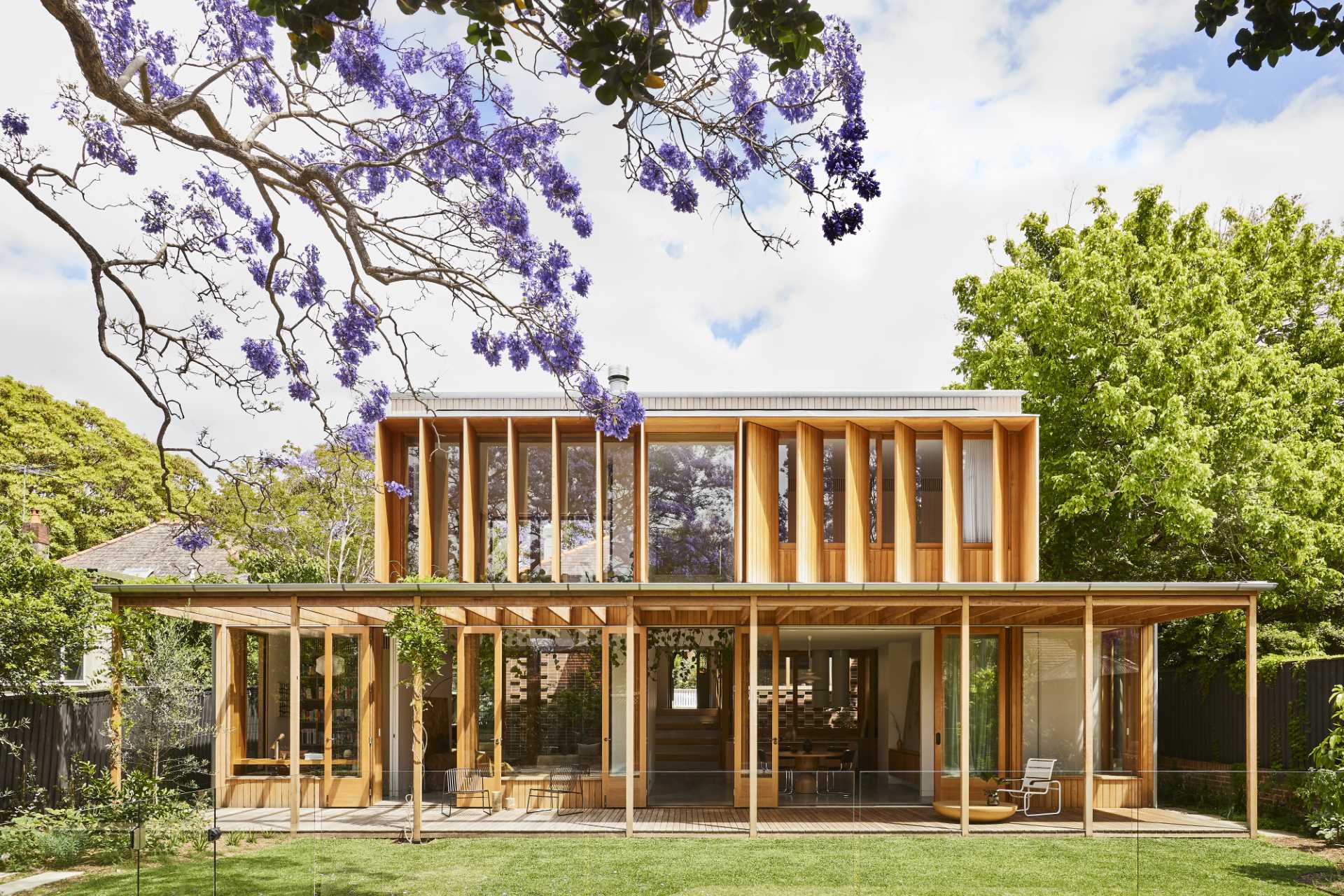
Carter Williamson Architects has shared photos of a new home extension that they designed for an Australian house in a heritage conservation area.
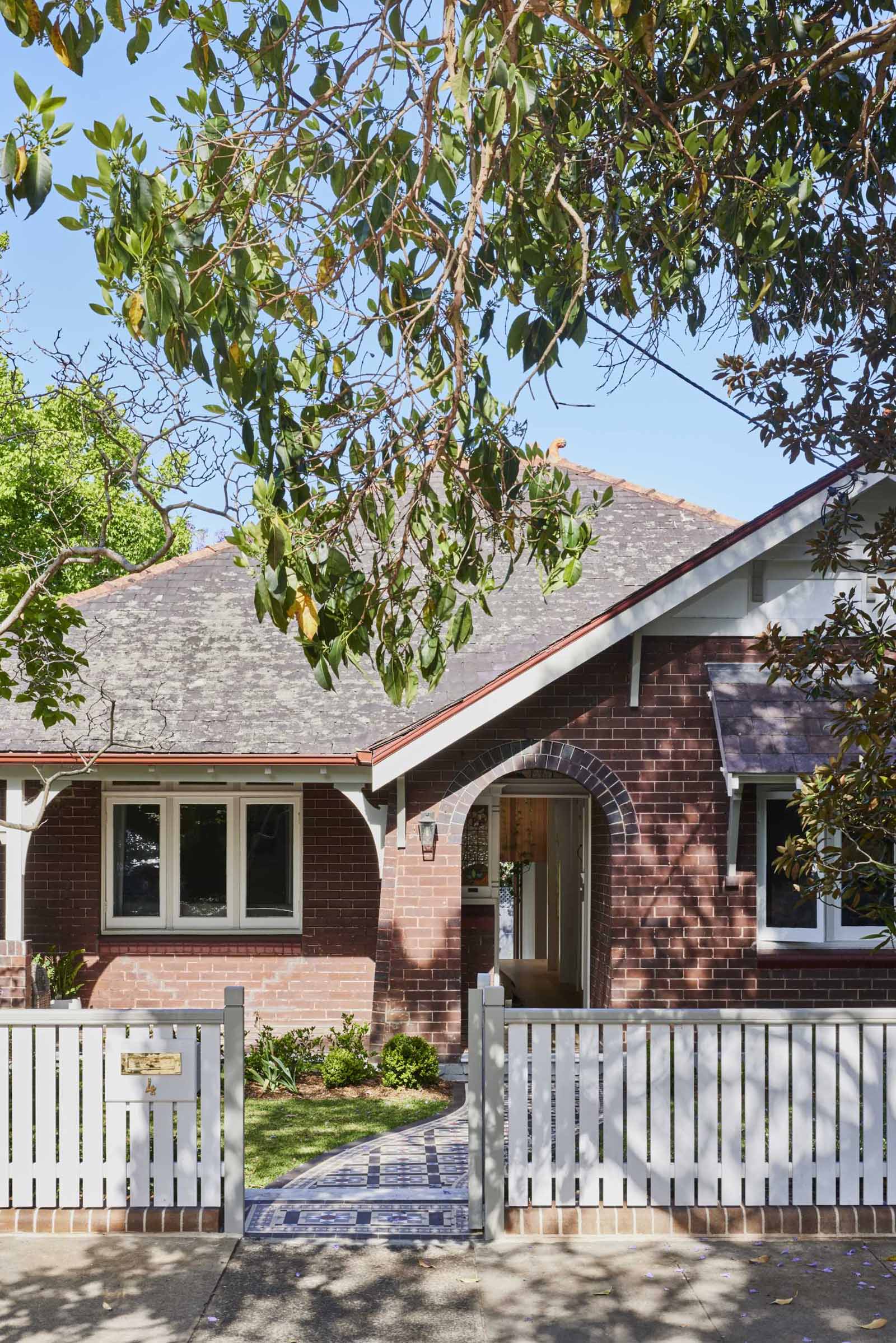
The designers’ brief asked for an open, warm home in which a family could truly gather, one that respected the home’s history while adding thoughtful contemporary layers.
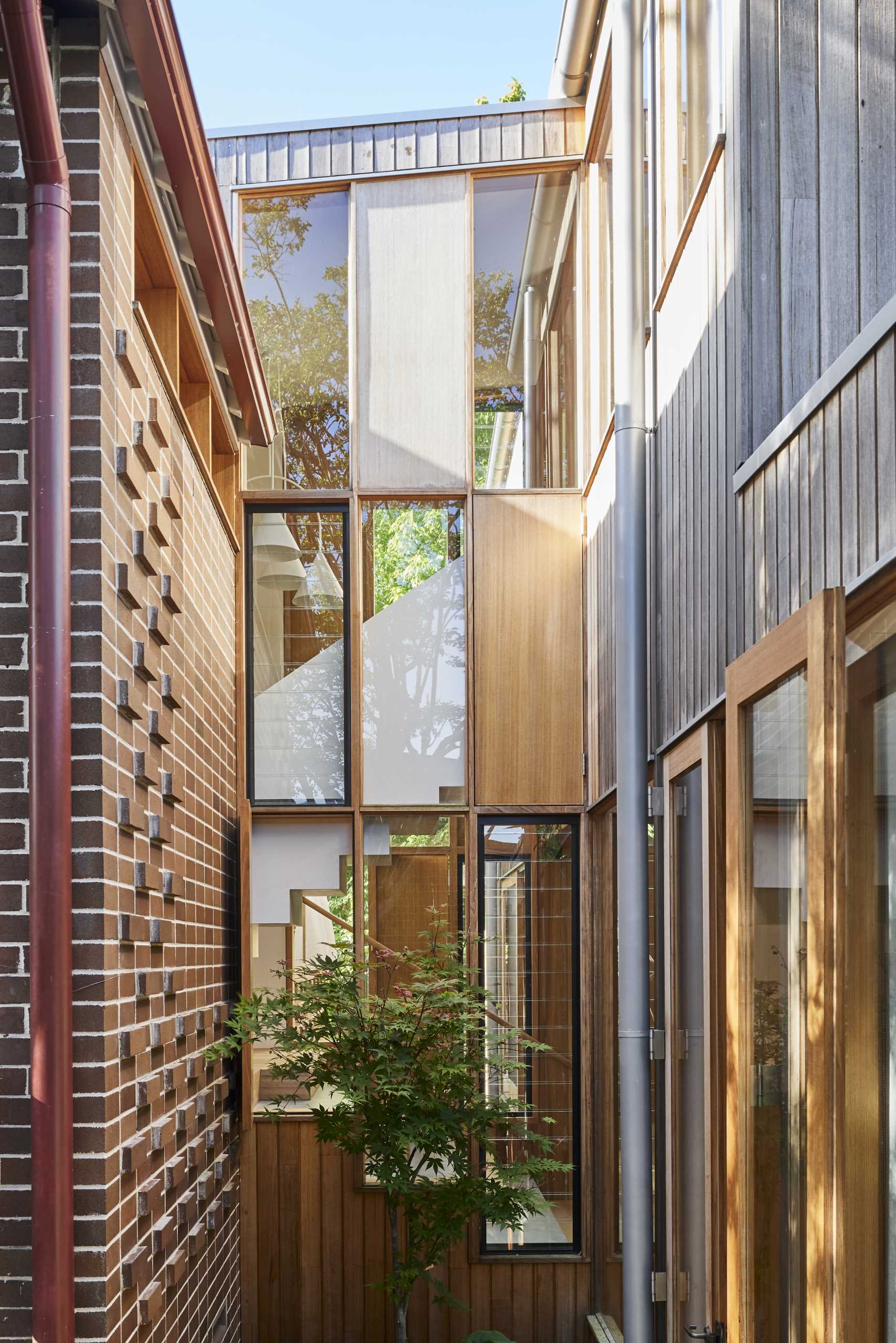
As a result of the brief, the designers created Wisteria, a meticulous expression of minimalism, simplicity, and purity, a light, airy pavilion rhythmically articulated in Victorian ash.
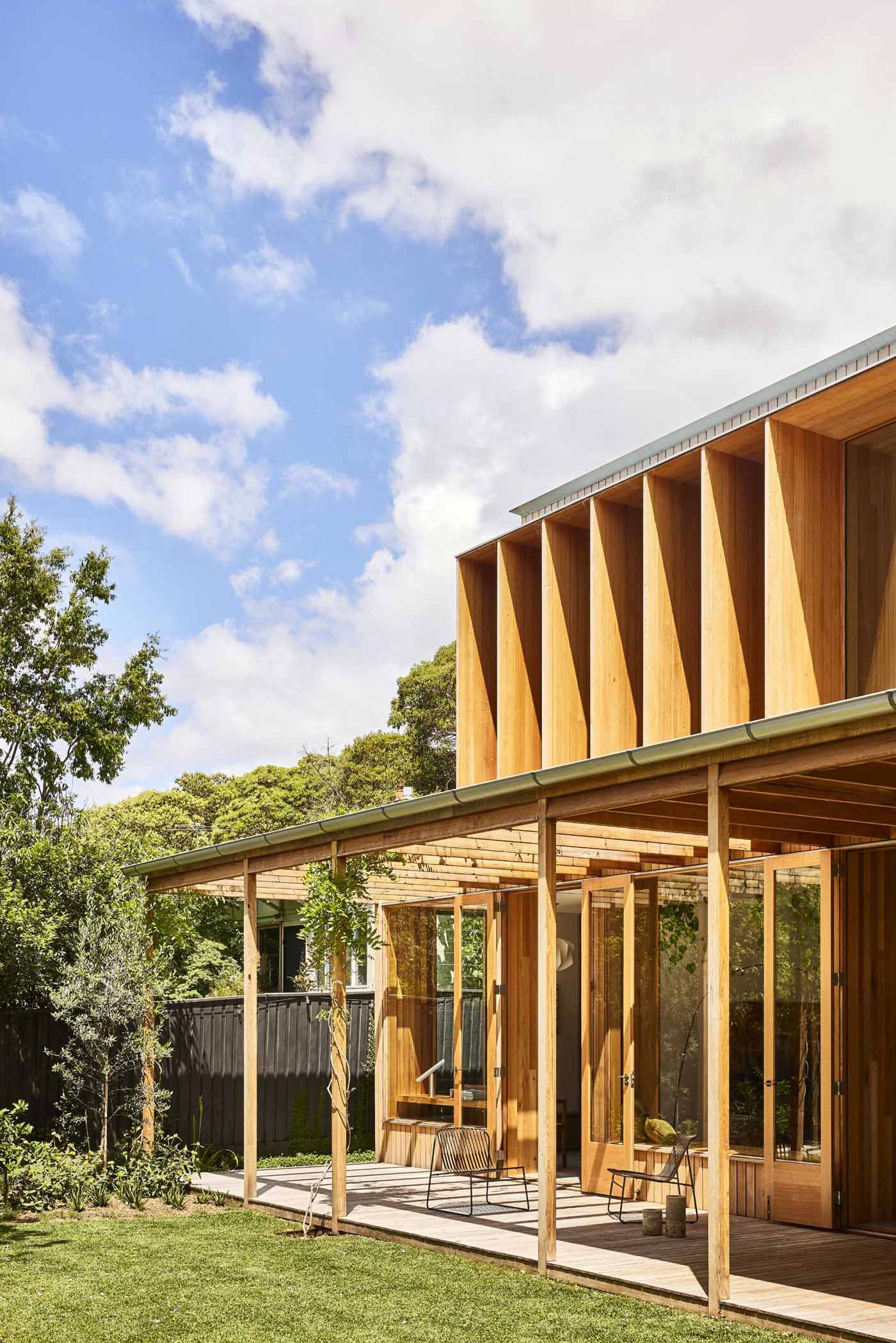
Inspired in part by early conversations about the balanced qualities of traditional Japanese homes and their small courtyards, sliding doors, and simple palettes, the extension soaks up the sunshine and embraces a strong connection with the outdoors.
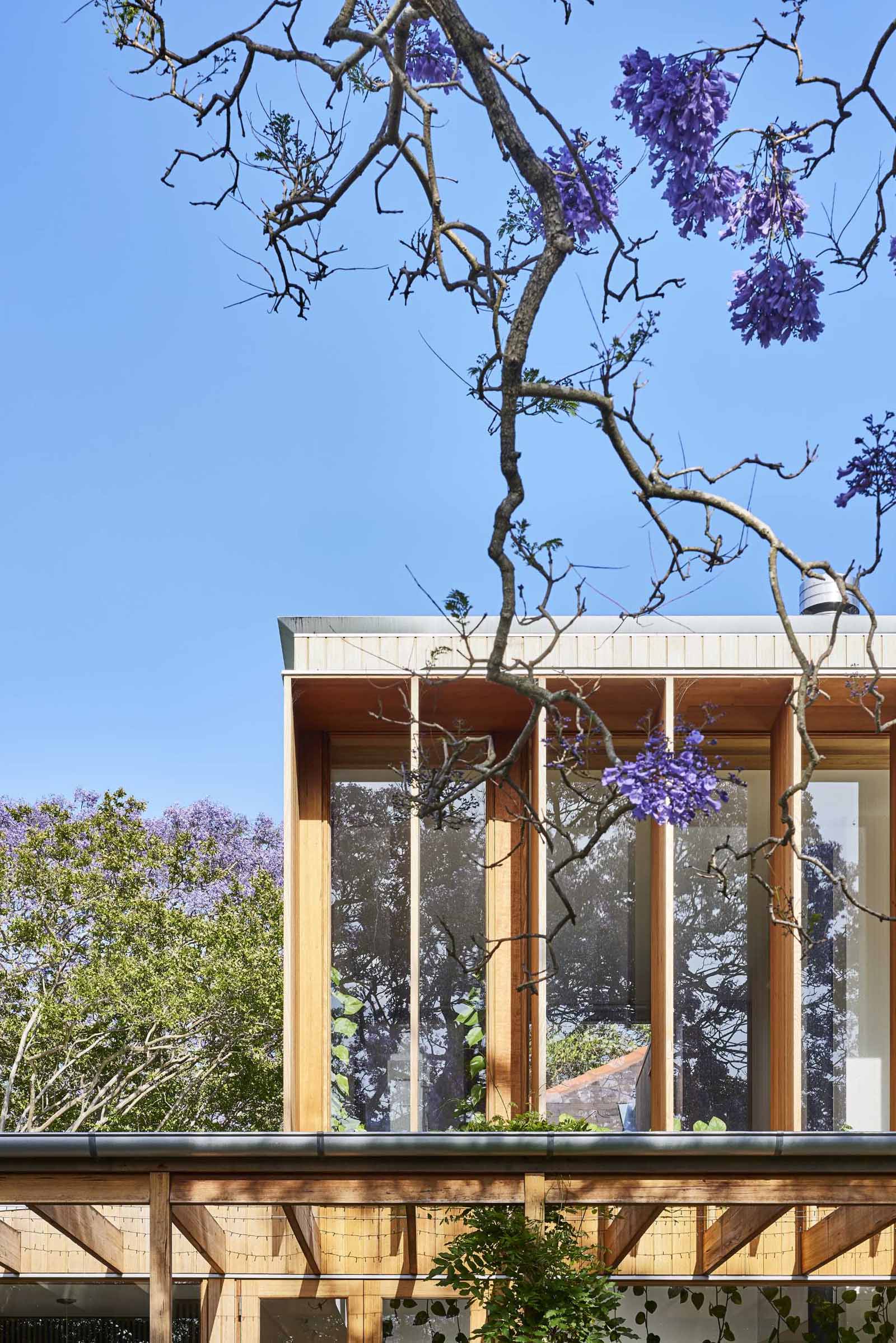
At the rear of the home, there’s a pergola that extends the living spaces and provides a connection with the backyard and swimming pool, as well as a view of the Wisteria tree with its purple flowers.
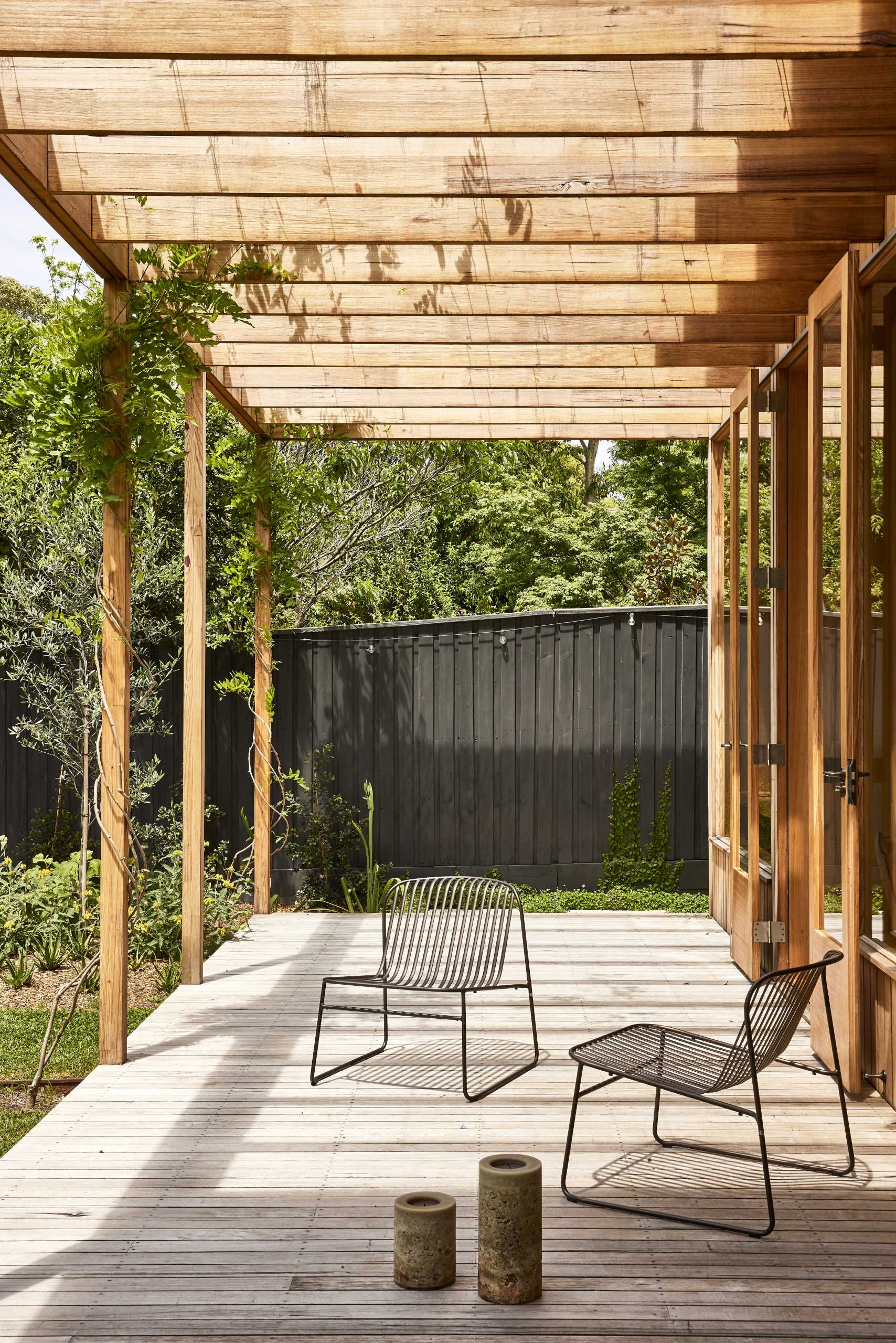
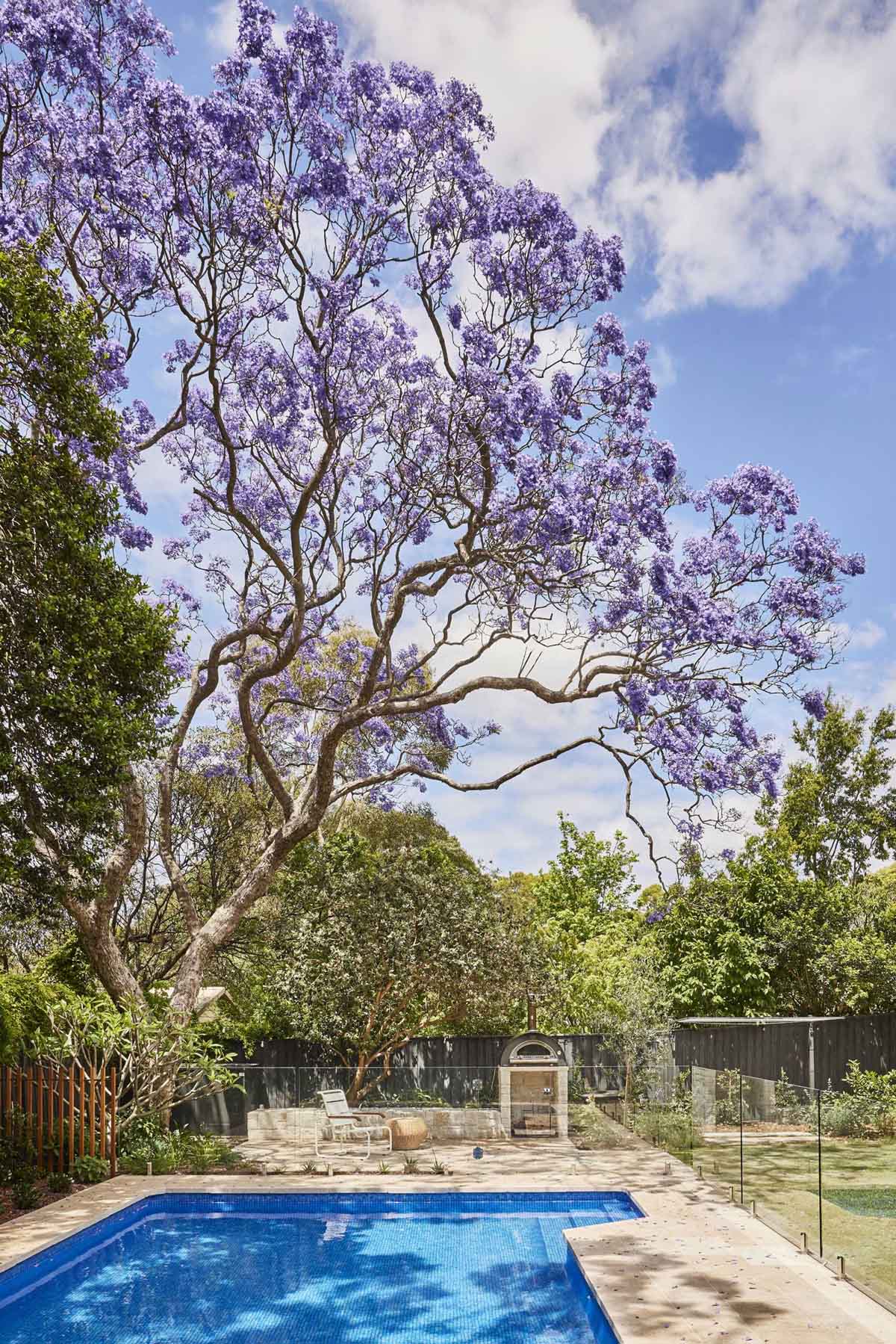
The wood framing opens the interior spaces to the outdoors and creates areas like a window bench with storage underneath.
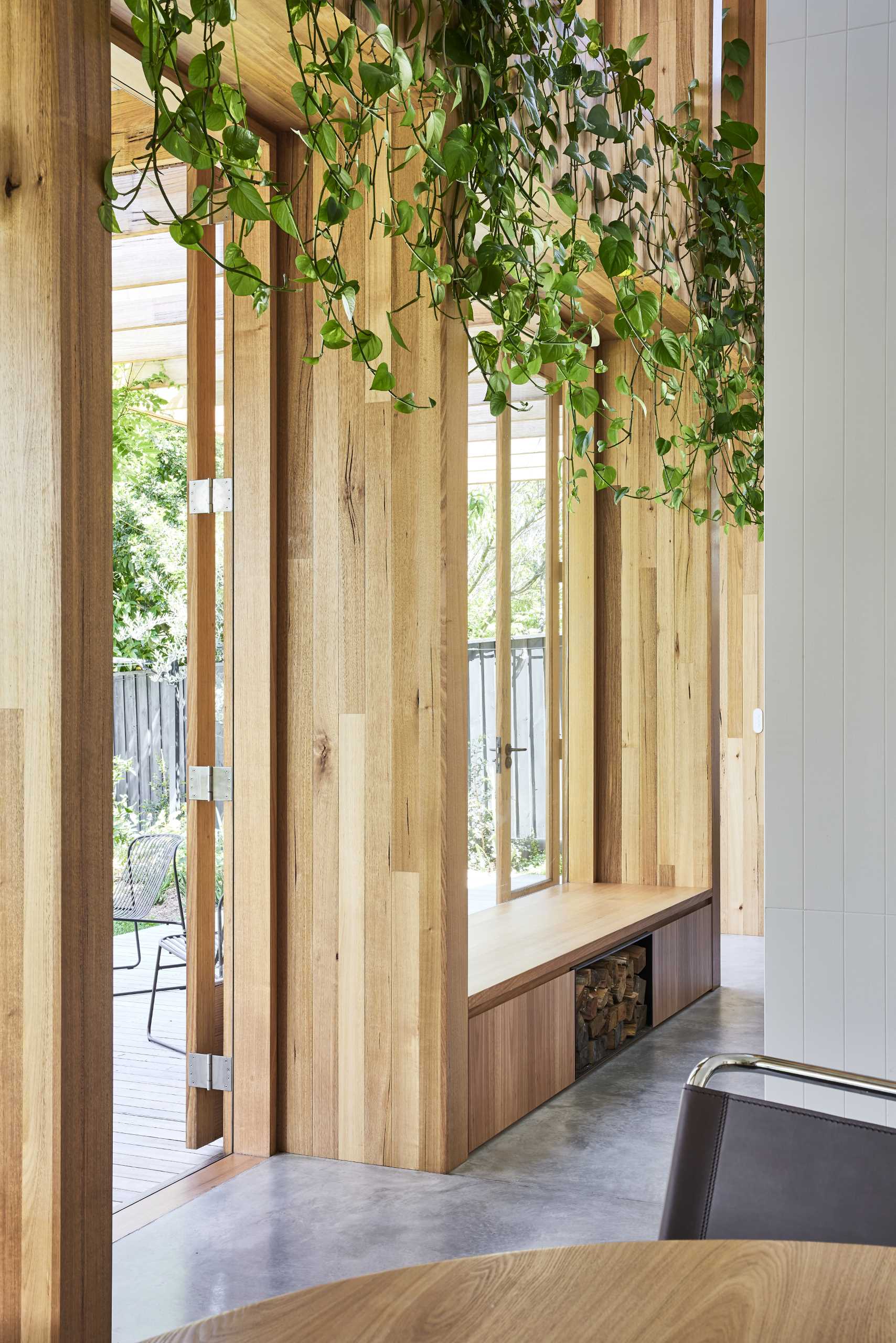
A double-height void divided by a fireplace opens the living, kitchen, and dining spaces to sunlight and air.
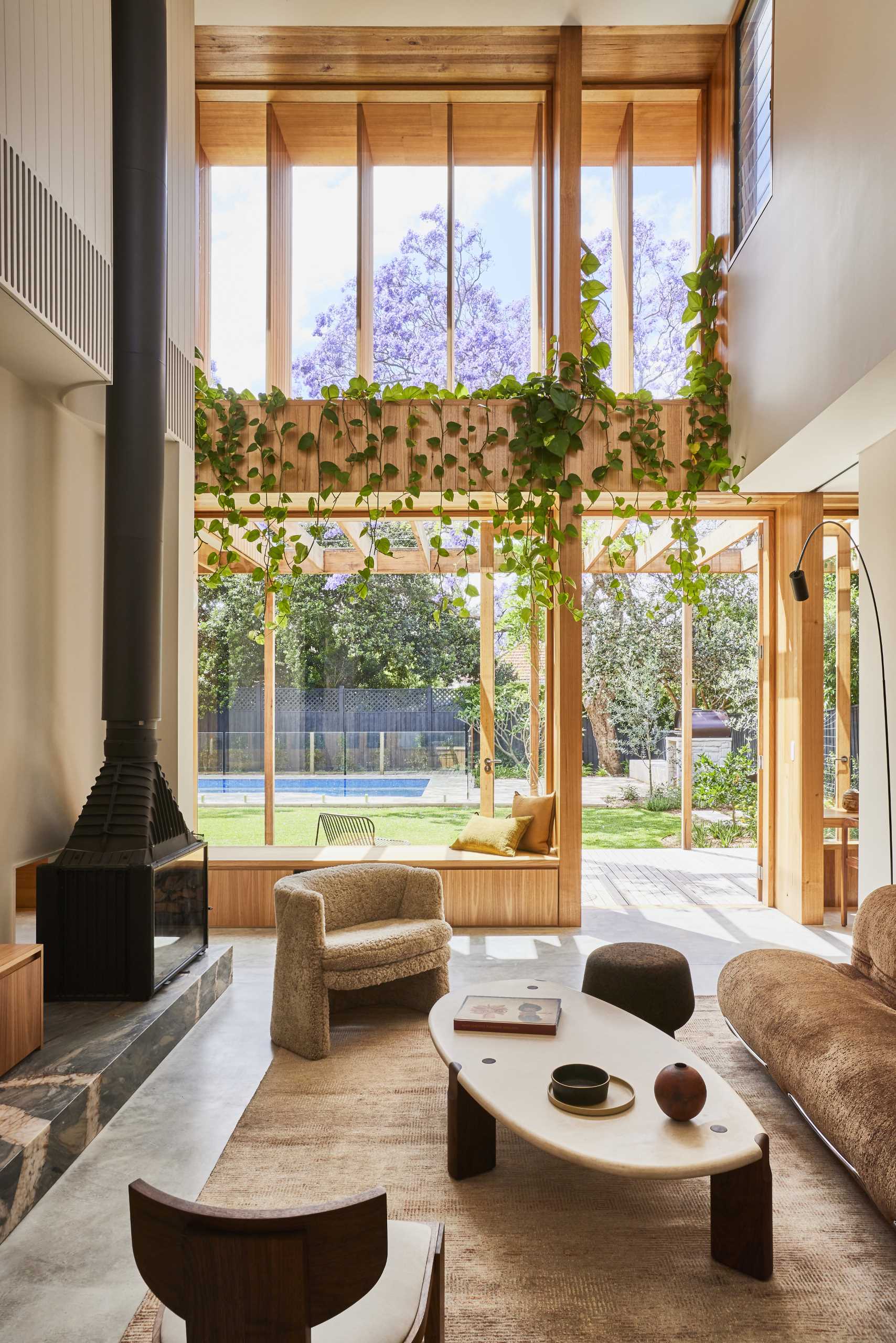
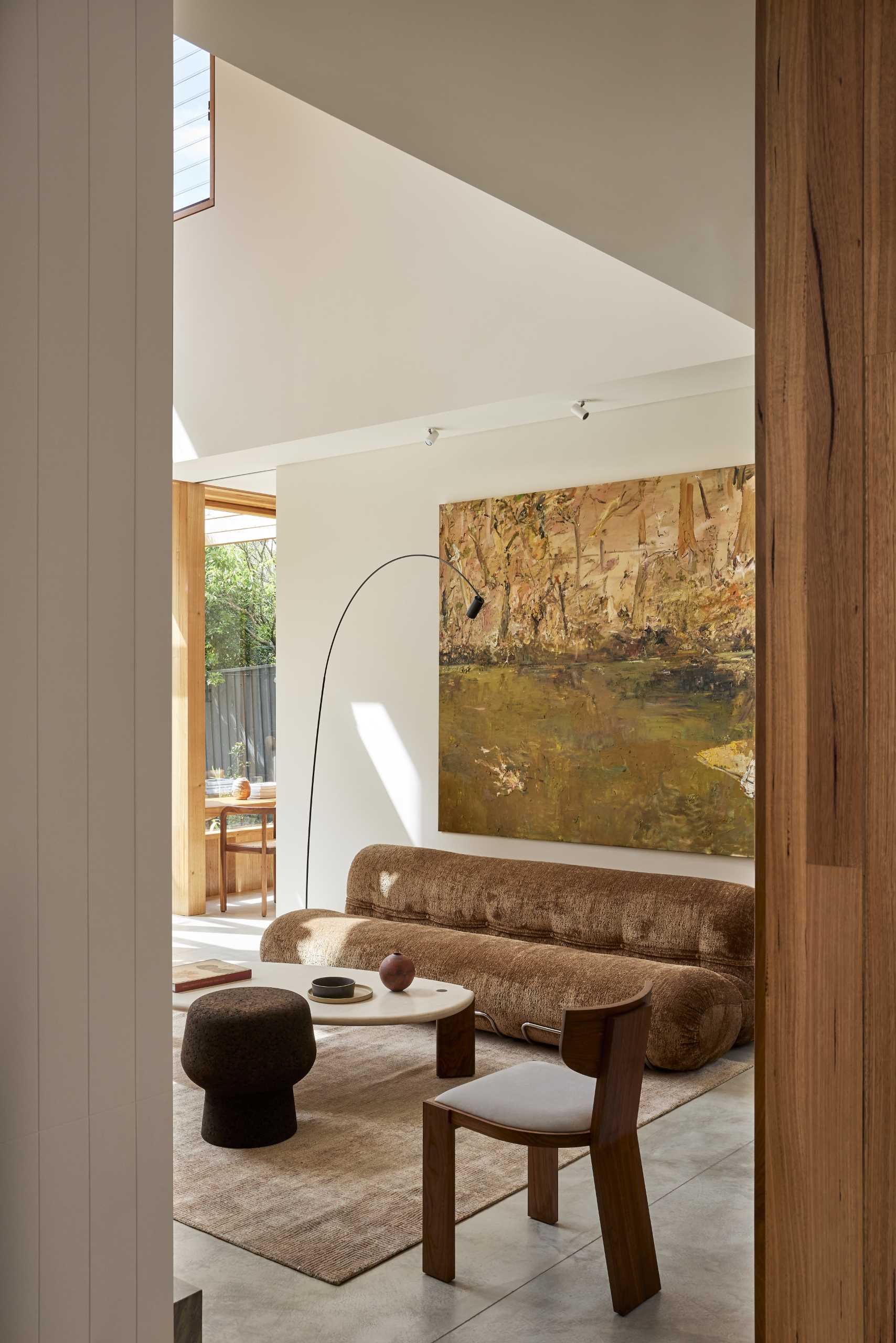
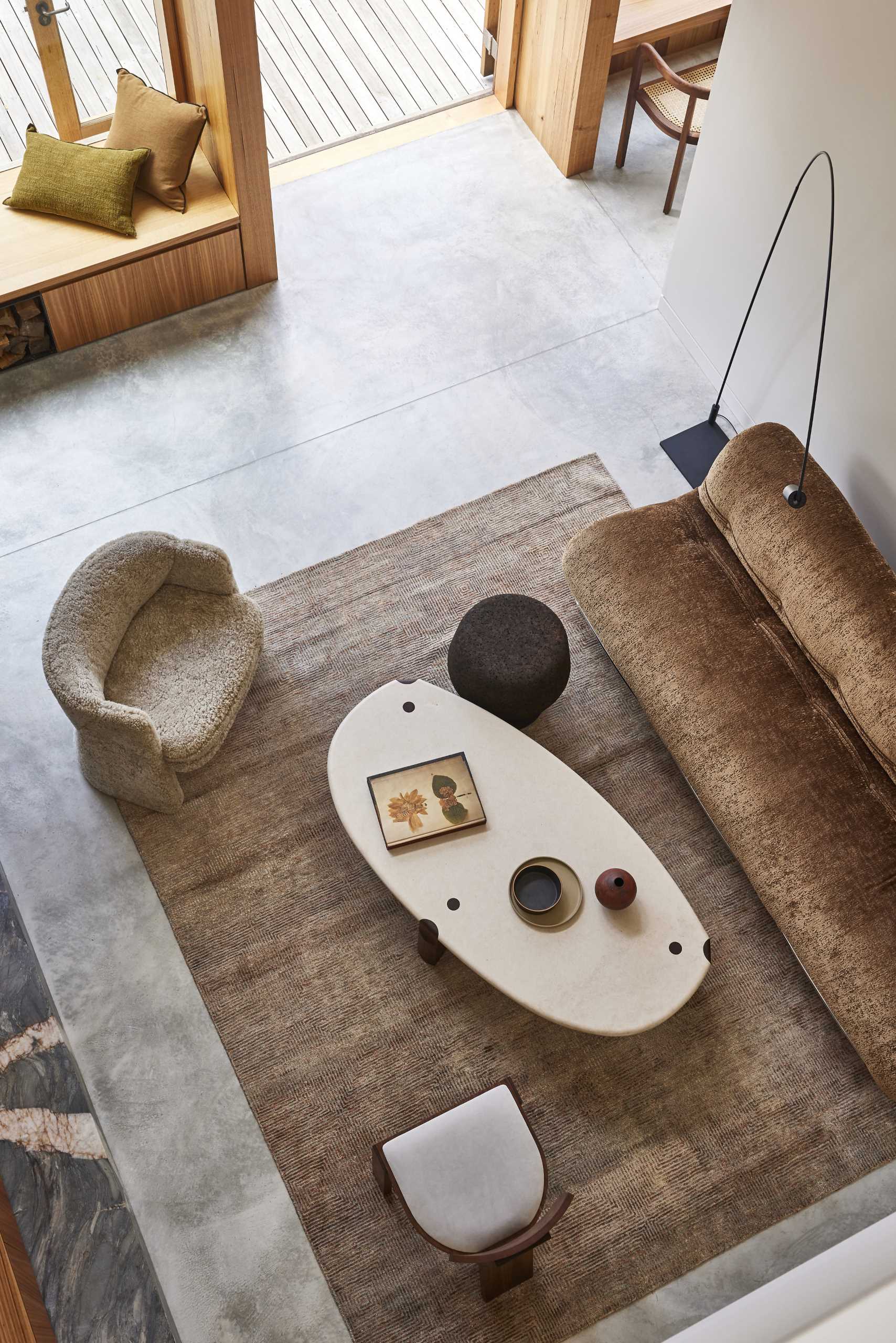
A laundry, pantry, and two studies bookend the space while deep window reveals equipped with timber blades and shutters frame the view of the garden
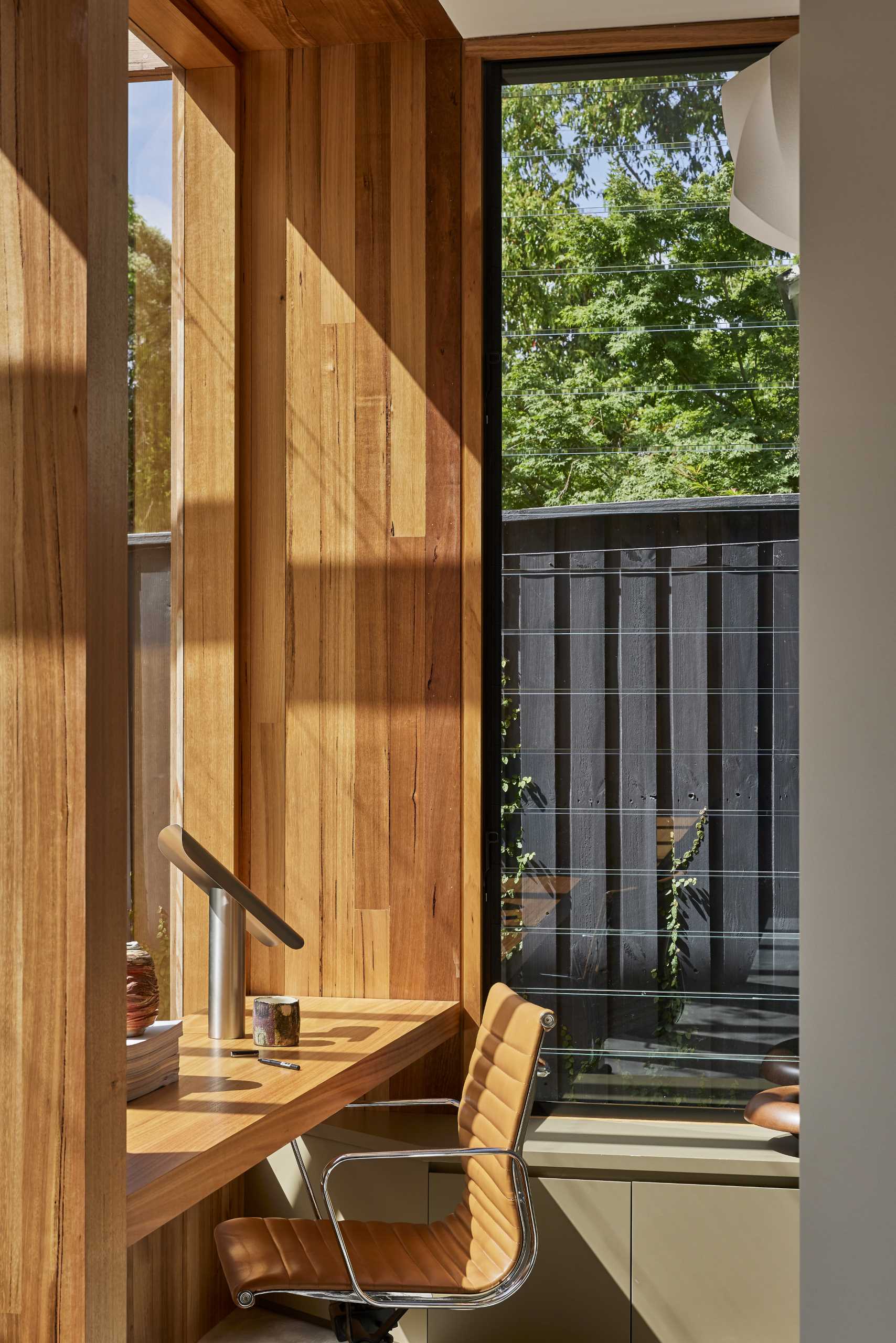
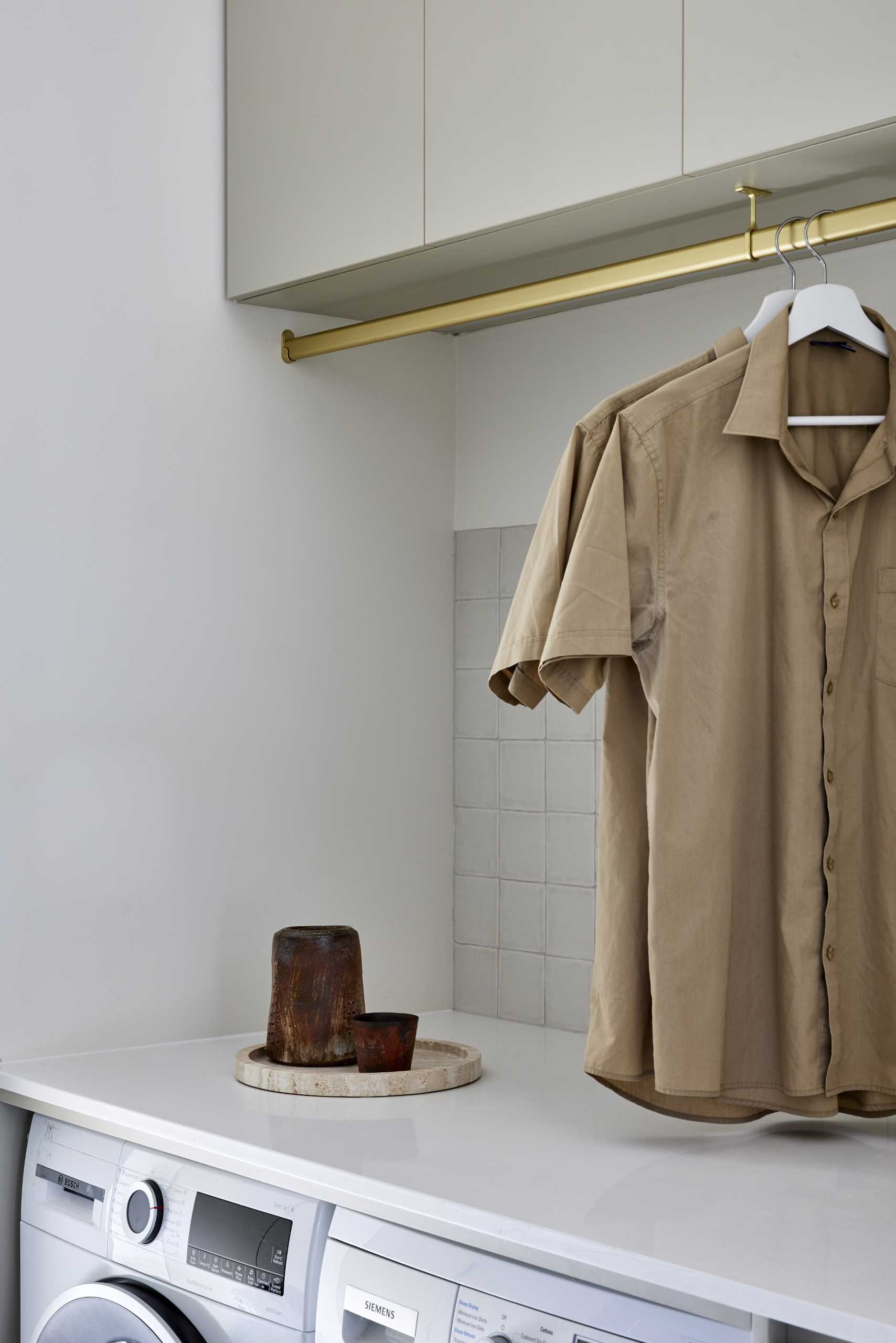
In the new kitchen and dining area, a round dining table is positioned below a pendant light, while the kitchen has an island and a large sliding window that provides views of the original home.
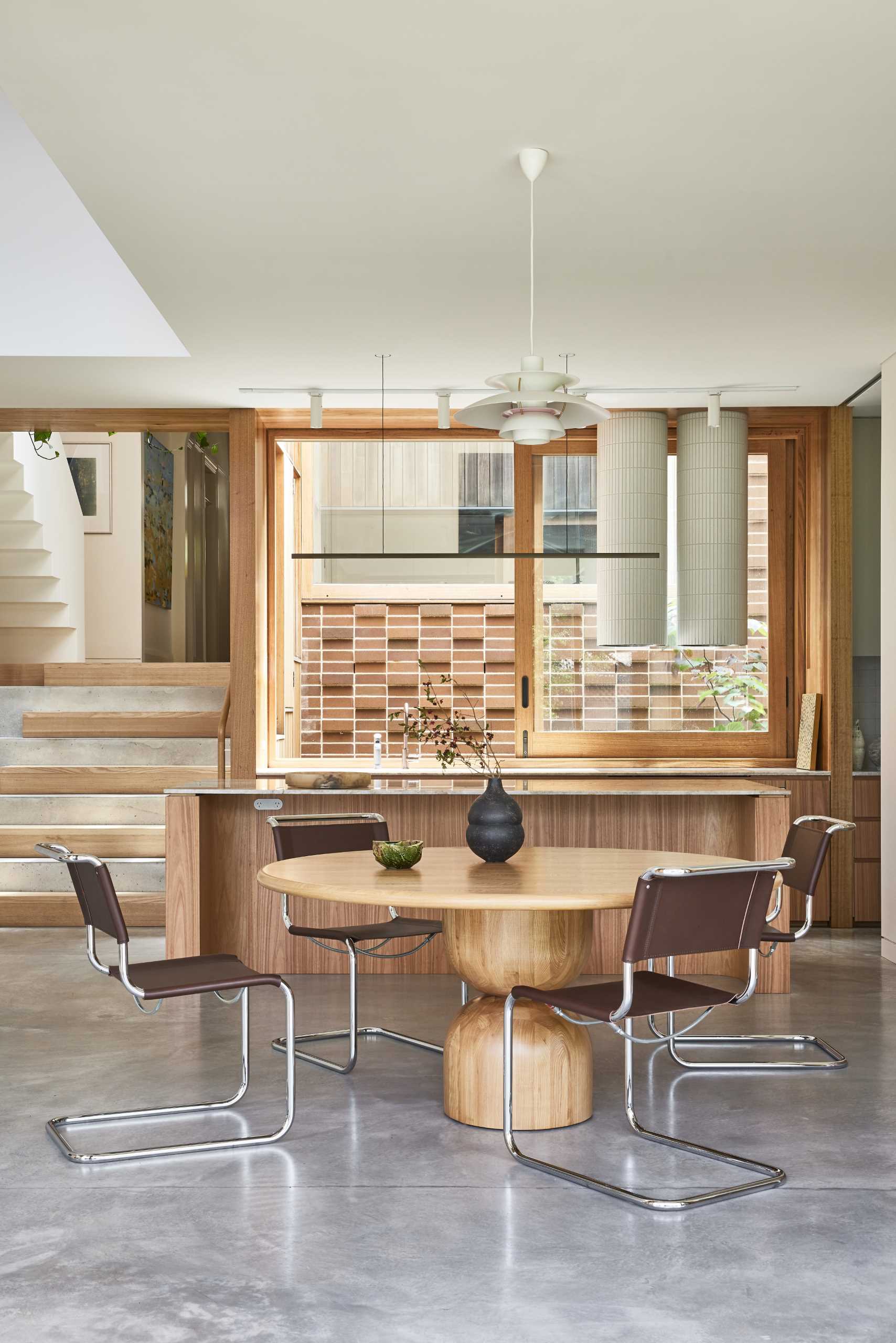
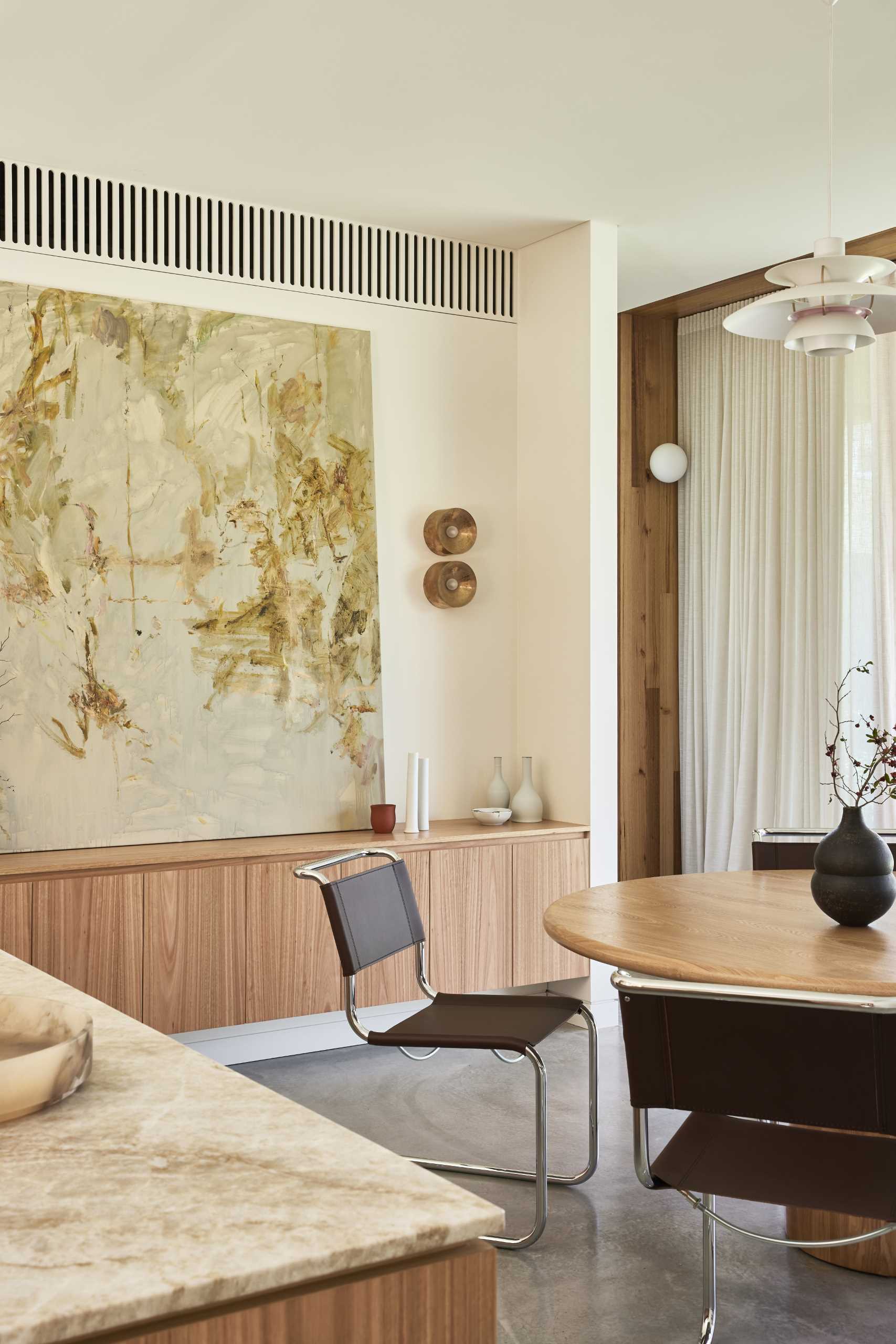
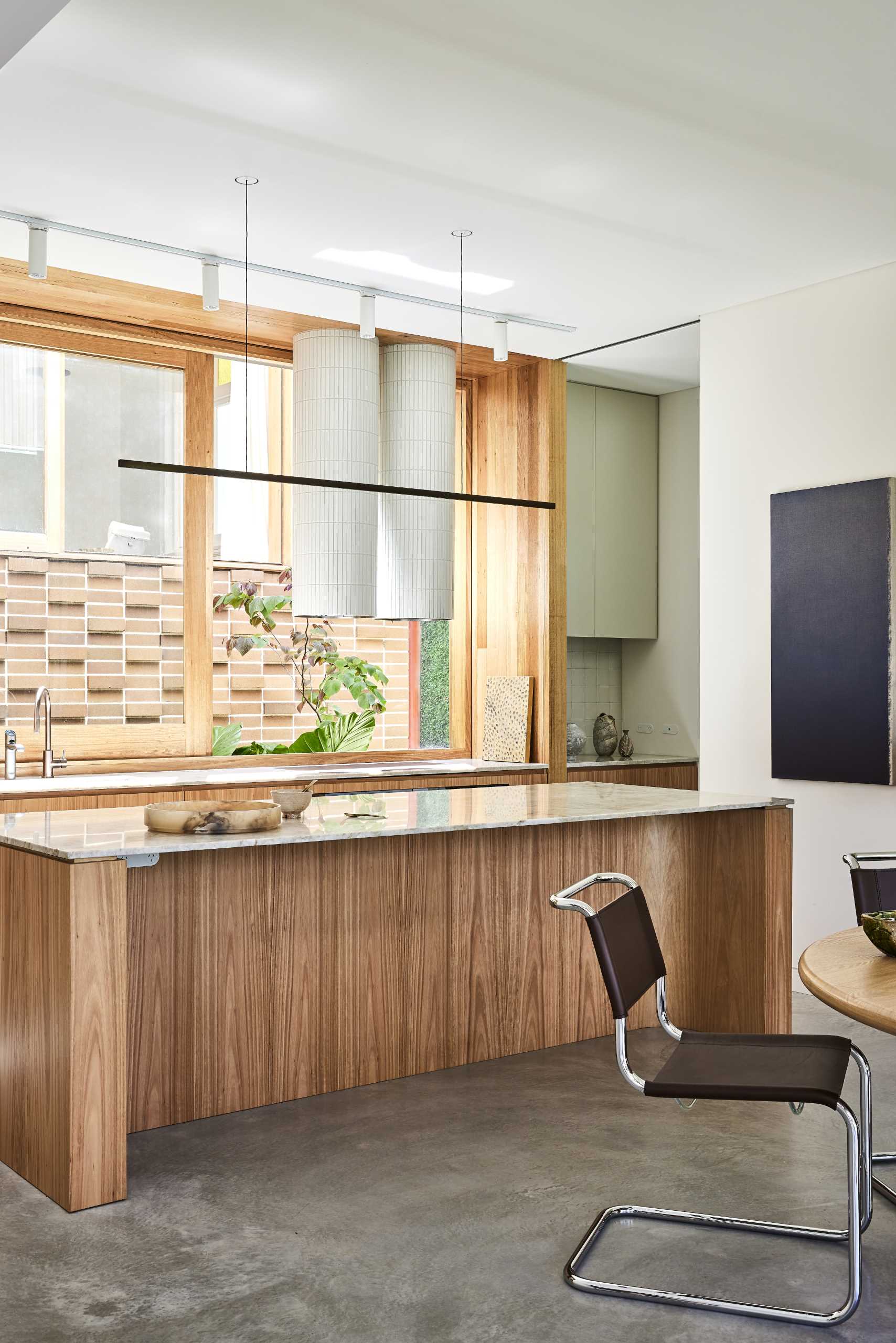
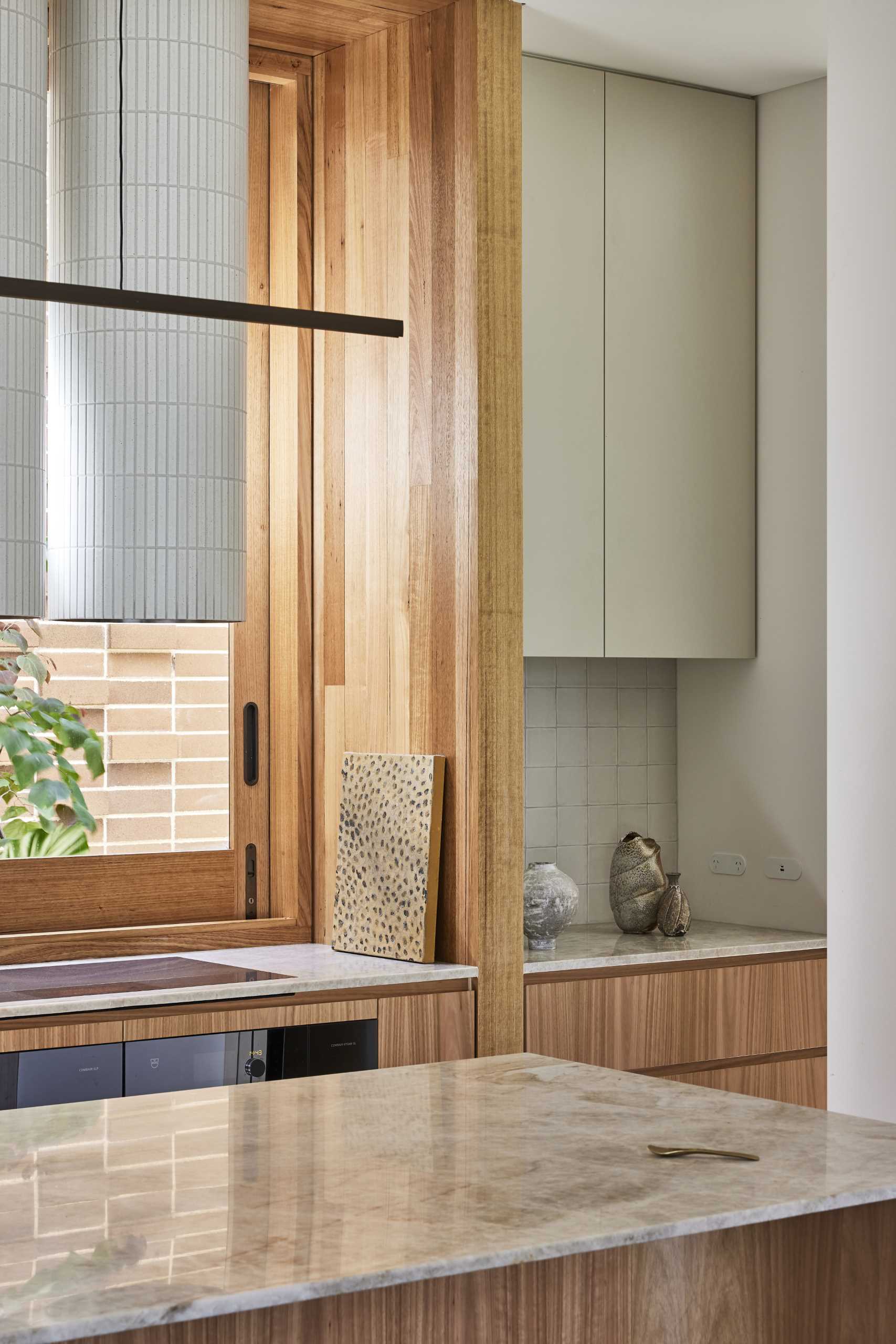
Wood and concrete stairs with white-painted steel handrails connect the new extension with the original home and the upper floor.
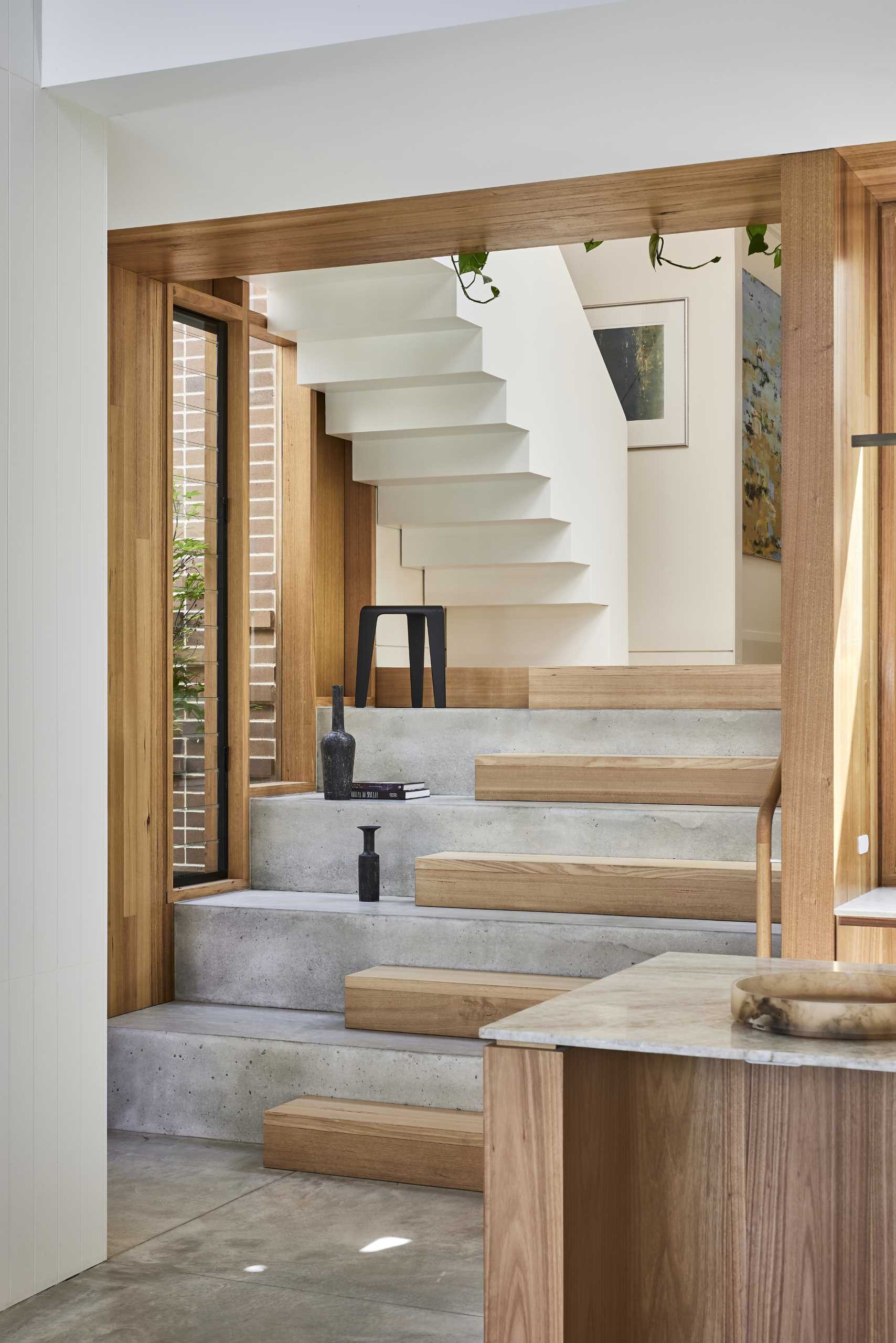
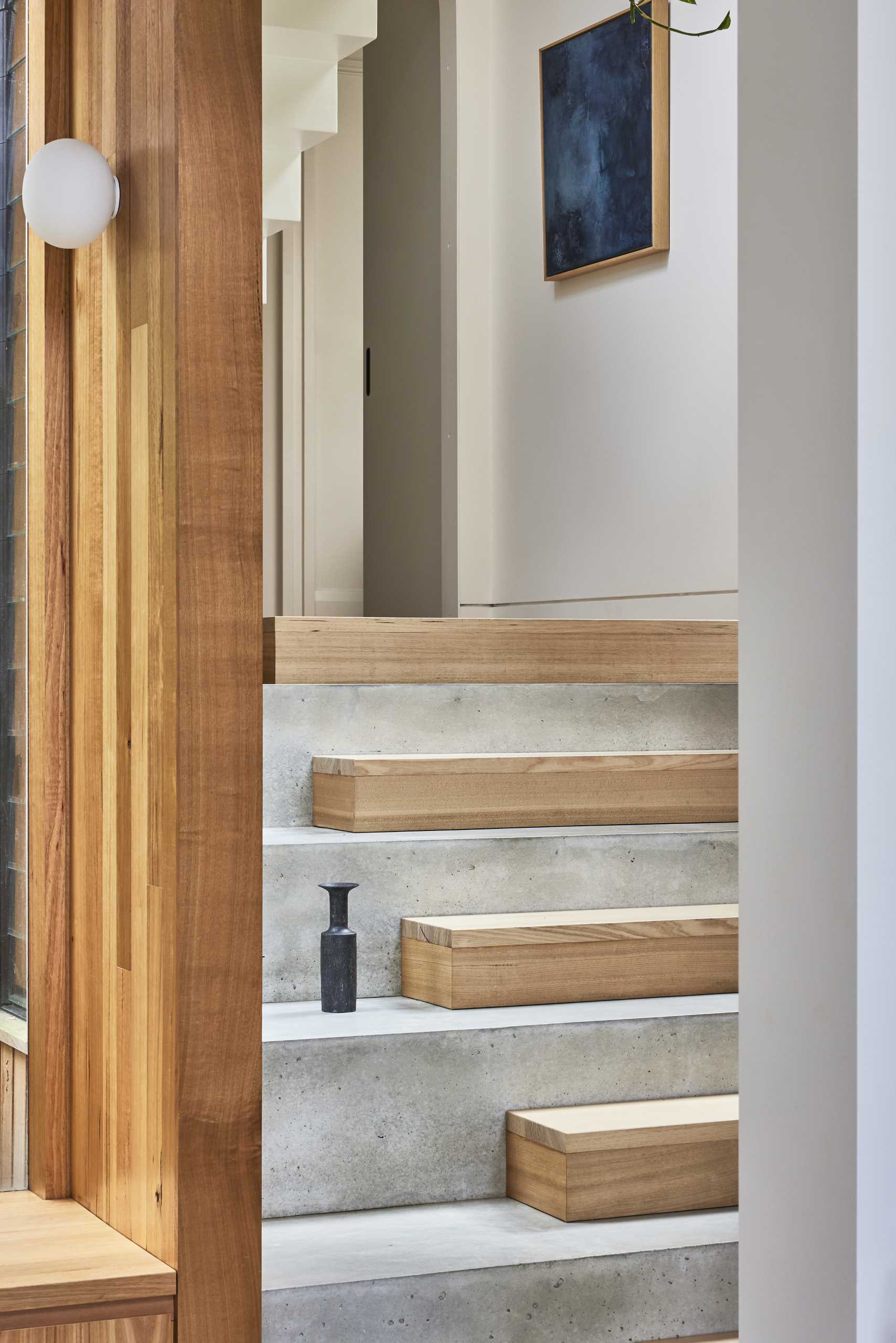
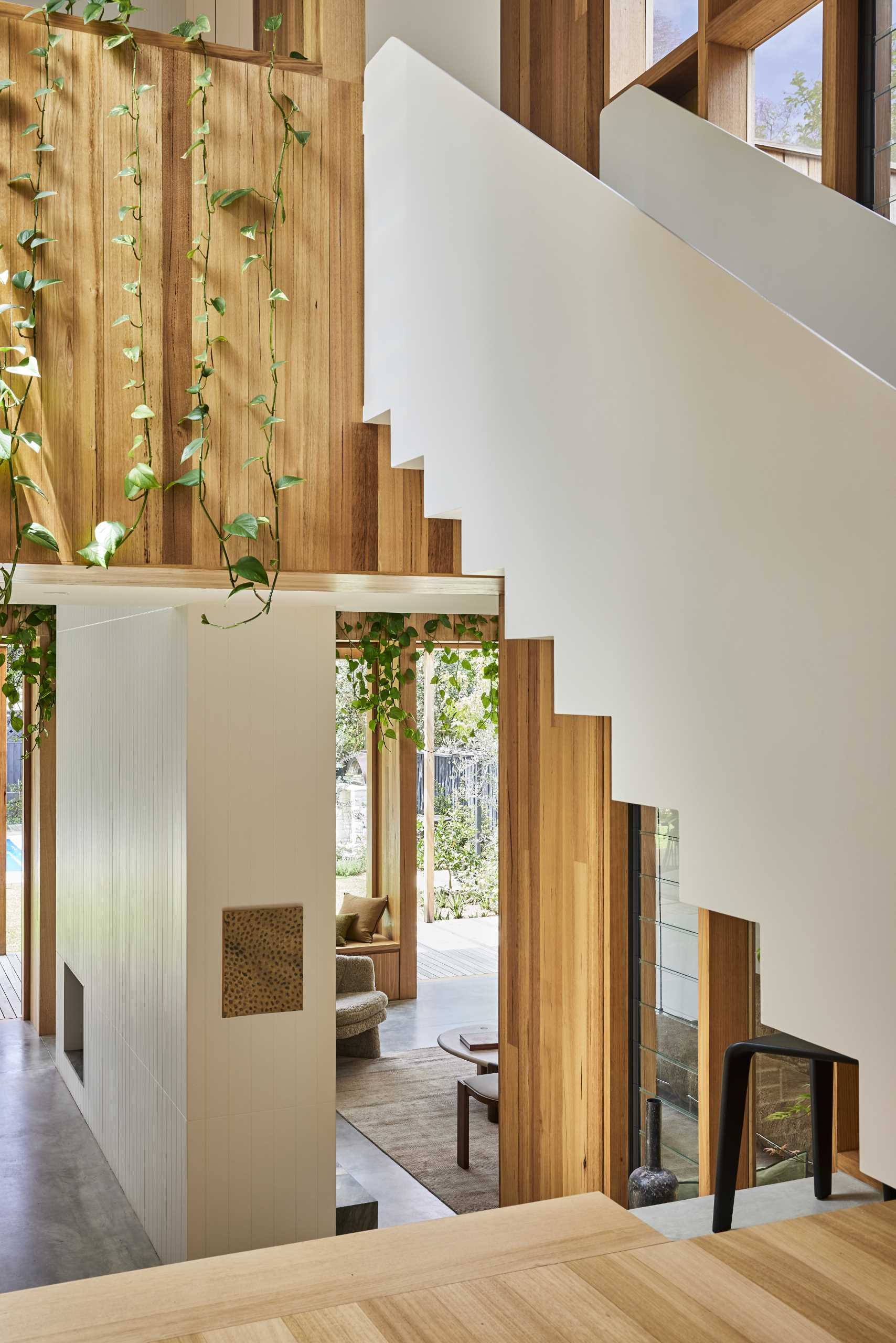
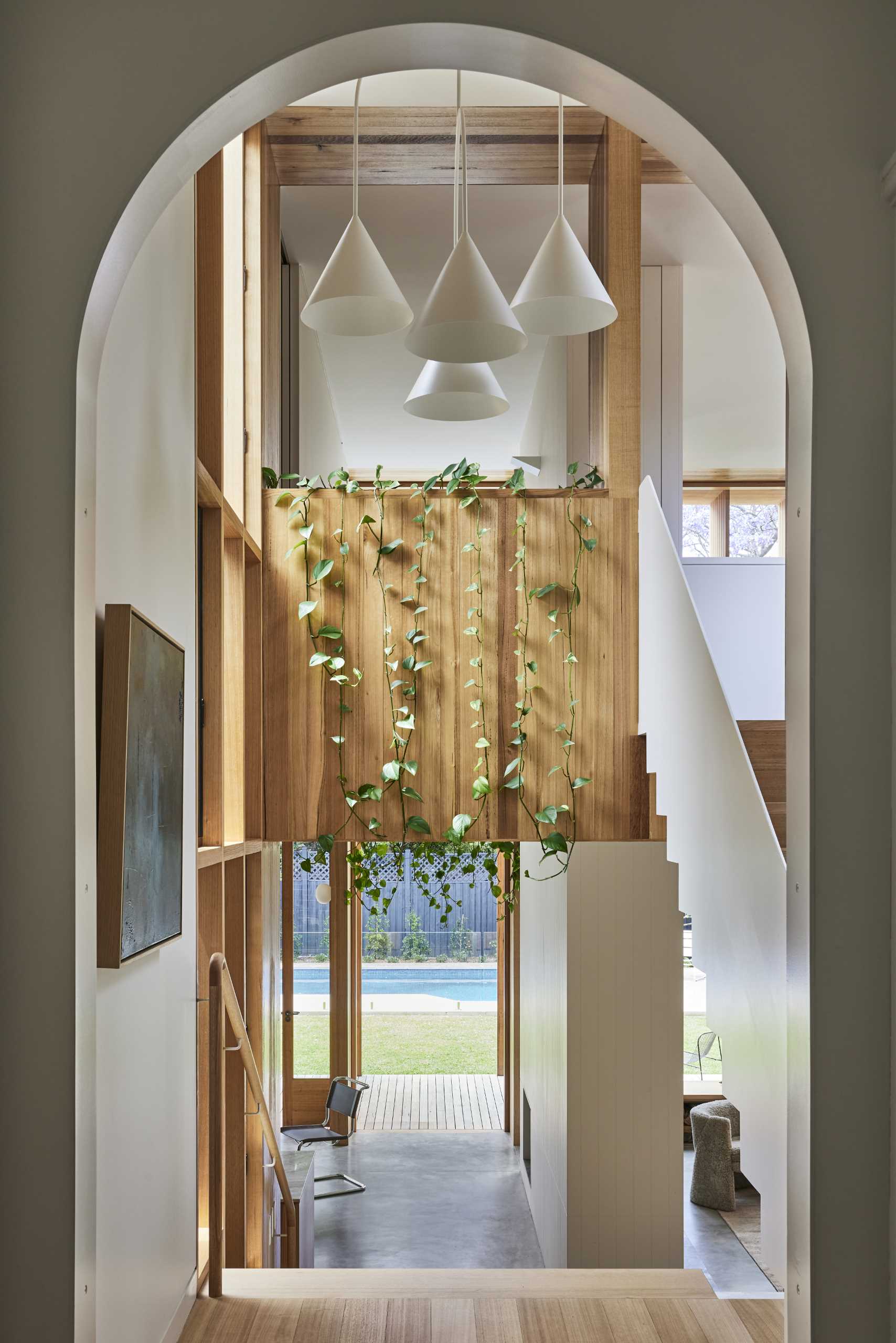
In a bedroom, a large wood-framed picture window is complemented by a smaller window with tree views.
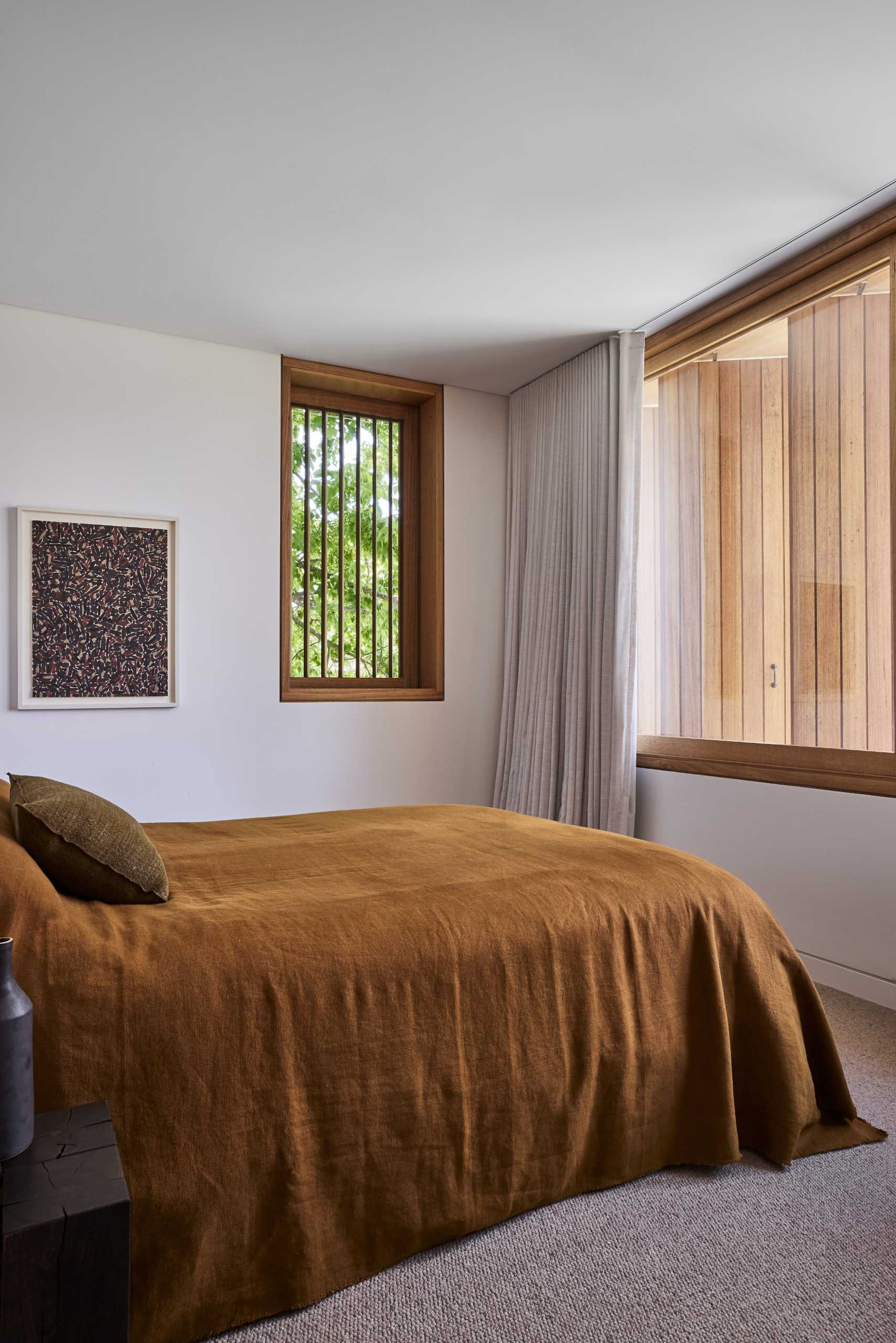
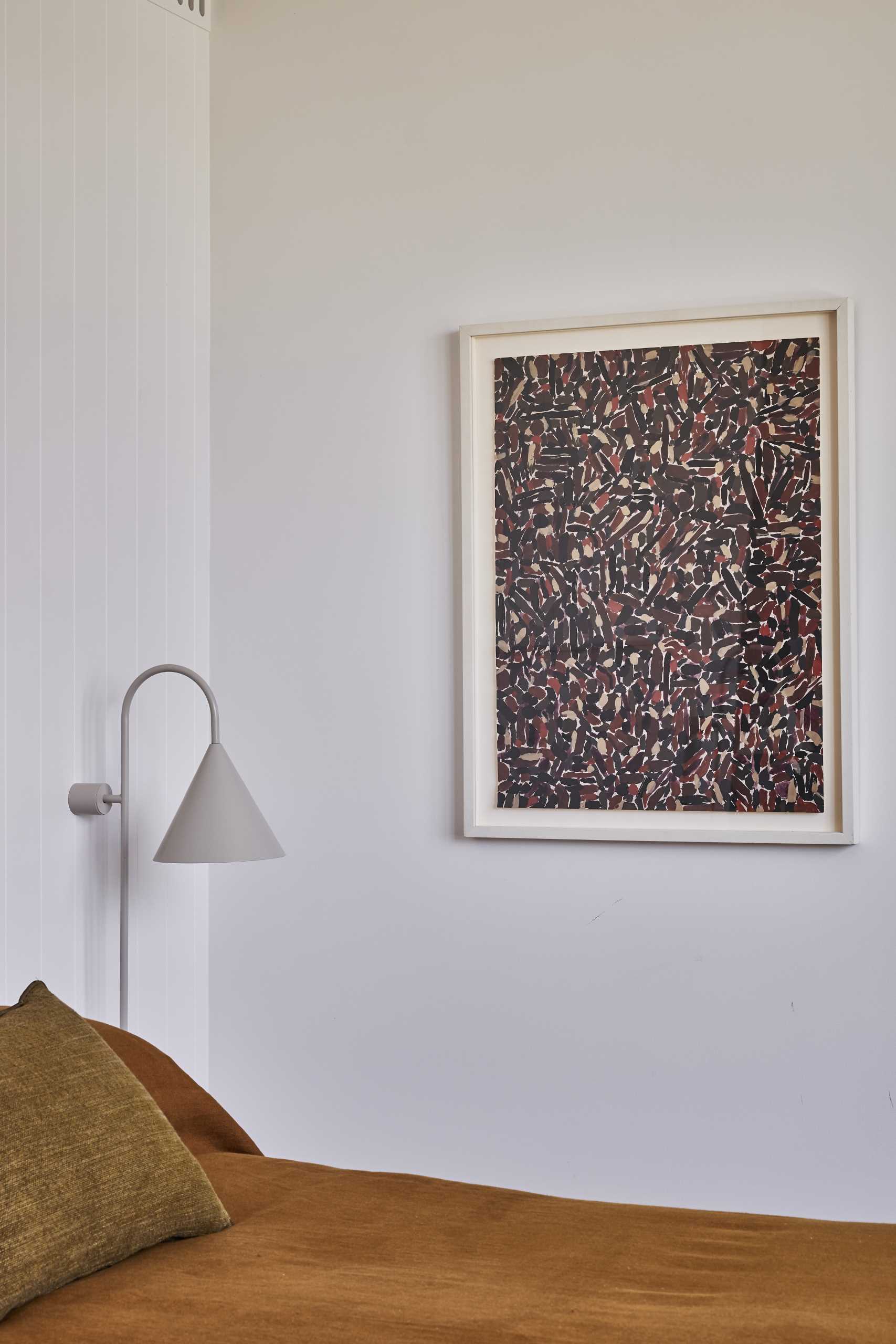
In the bathroom, there’s a built-in bathtub next to the shower, while tiles partially cover the walls, and globe lights are positioned next to the mirror.
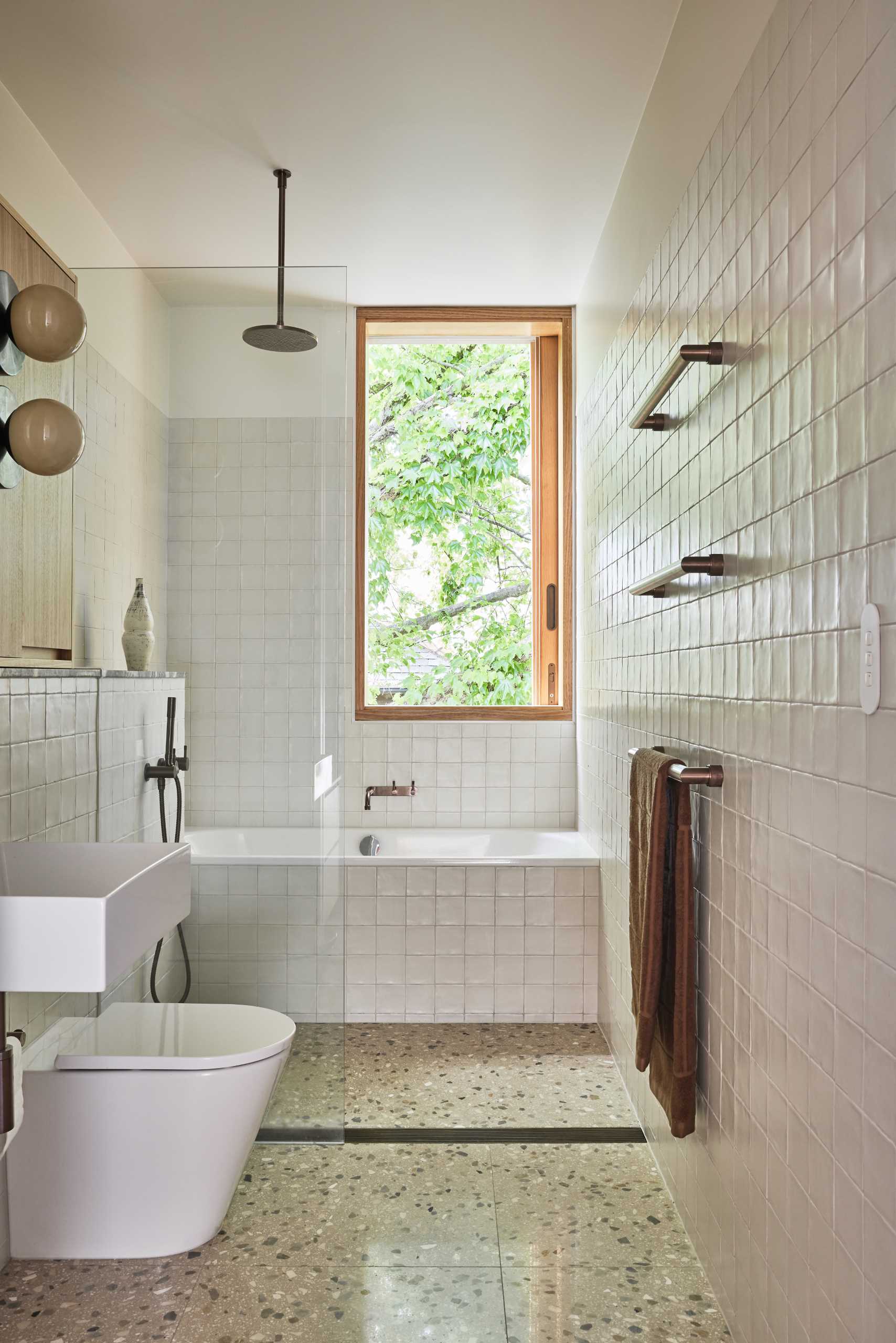
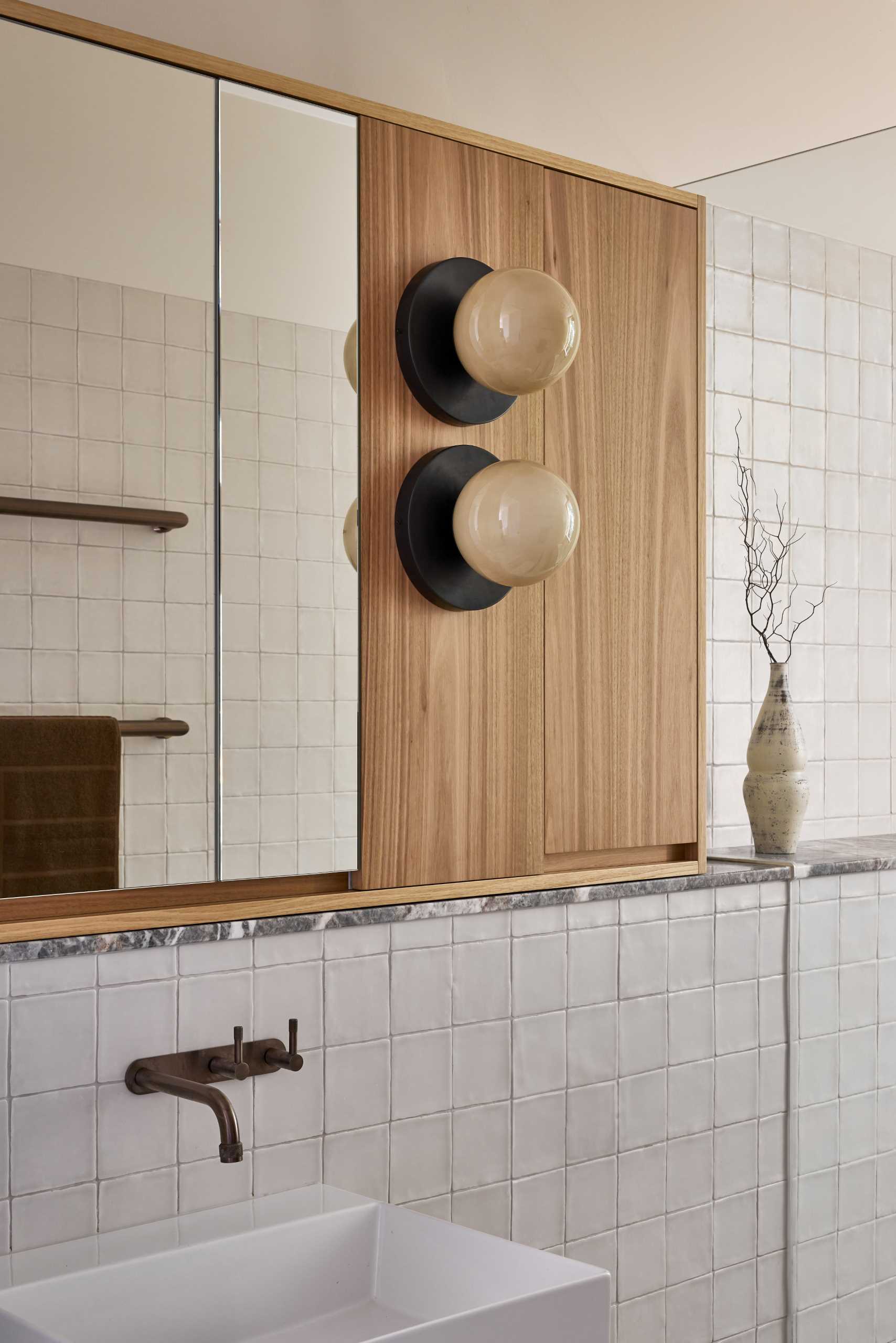
Photography by Pablo Veiga | Architecture & Interior Design: Carter Williamson Architects | Landscape Architecture: Hugh Burnett | Structural Engineering: Rebal Engineering | Construction: Andrew Burton Construction | Styling: Studio CD
Source: Contemporist

